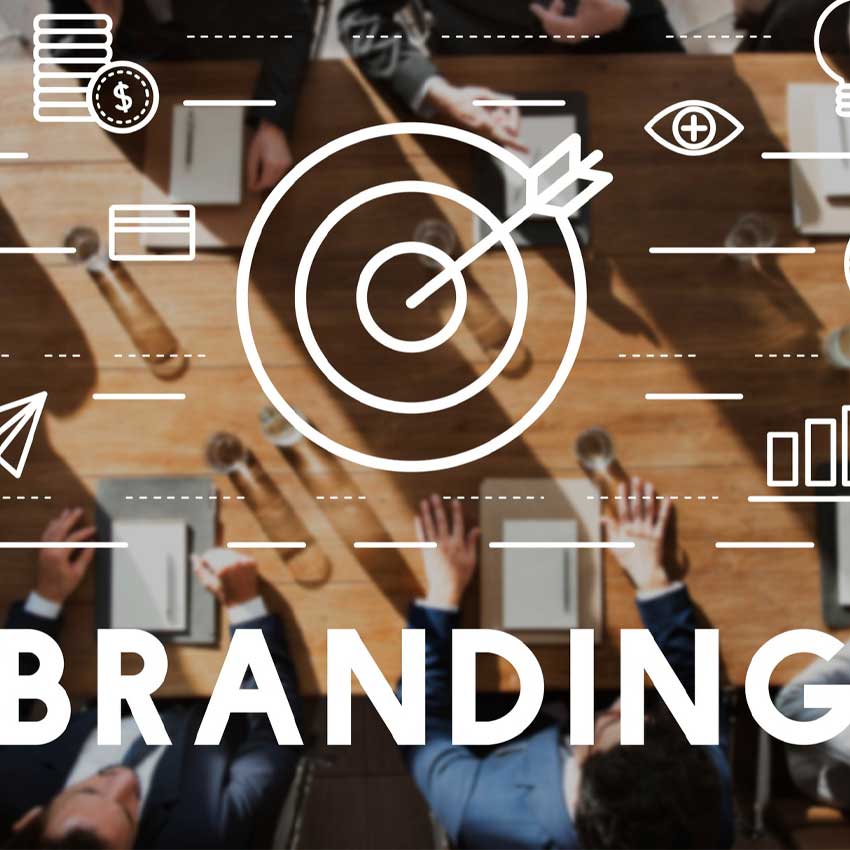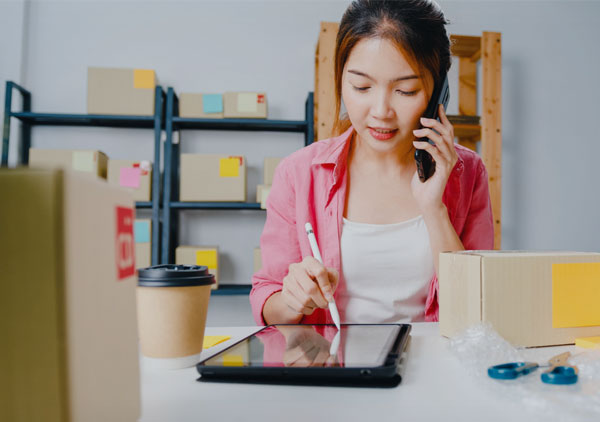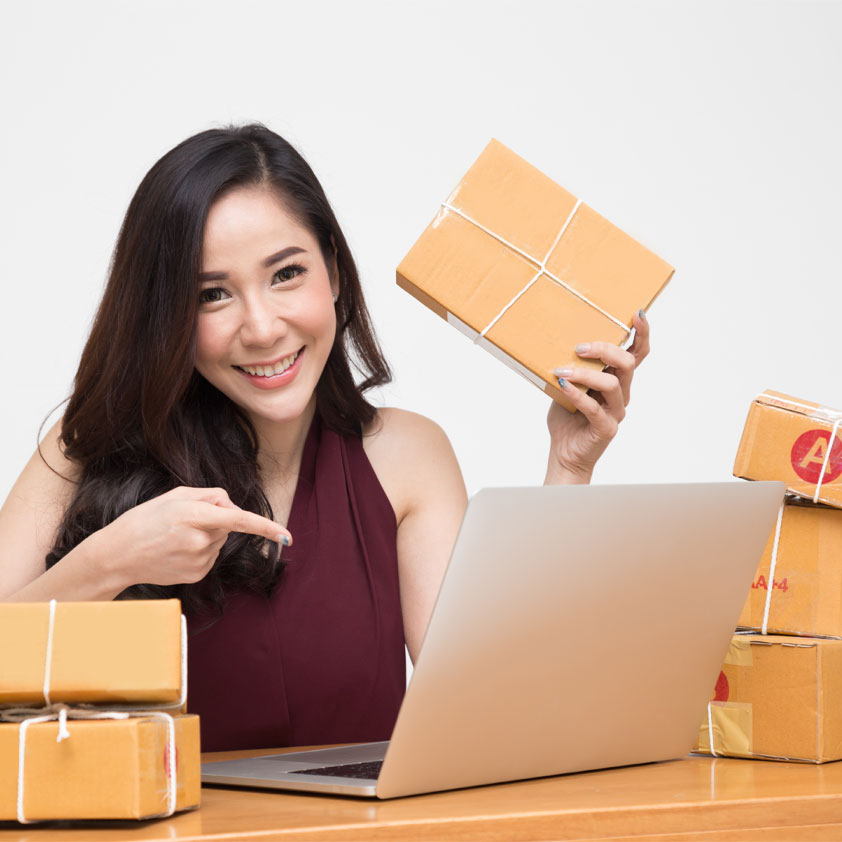
White labeling products- generics that you sell under your own brand.
China is a great place to buy generic goods to sell under your own brand. There are risks, but they can be avoided. By reading this guide, you’ll be on your way to foolproof business.
Looking for the right product to sell but struggling to come up with one? It can be a dilemma, but you shouldn’t let it stop you. White labeling is the way to go. Simply put, it’s buying a product made by another company, putting your brand on it, and selling it as your own. It’s a great option for retailers who want to start a business quickly but don’t have a unique product idea or a lot of capital (or the interest) to make the goods themselves. With the e-commerce boom driven by Covid-19, white labeling products have gained popularity. White labeling inquiries from retailers surged 75% during the 2020 pandemic lockdown, according to the BCMPA (a UK trade group for contract manufacturing, packing, fulfilment, and logistics).
Here’s what white label goods are, with a special focus on sourcing them from China. Here’s what you need to know:
- What’s the most reliable way to find Chinese manufacturers
- What precautions to take when sourcing these products from China
White labeling products: what are they?
White label products are made by one company (the manufacturer) but sold by another (the retailer). They’re also called private label goods, but there’s a big difference between them. White label goods are generic products that are sold to multiple retailers, who then resell them under their own brands. For example, ibuprofen is sold under many brand names, including Advil, Motrin, and Nurofen. On the other hand, private label goods are sold exclusively by a company to a single retailer. A private label product is Walmart’s Great Value white bread, which is made by Sara Lee. In addition, white label products can’t be customized like private label goods.
White label goods are huge in food and beverage, pharmaceuticals, electronics, cosmetics, personal care, and pet supply industries. Walmart, Tesco, Whole Foods, and Target sell branded goods made by third parties. While white label goods might be the term, white labeling is also used in the services sector. For example, Macy’s offers an American Express store card.
Pros and cons
Retailers who sell white labeling products have the advantage of not having to invest in manufacturing. A manufacturer takes care of everything, including product characteristics and components. In addition, they produce the goods a lot cheaper than a retailer could. Here are some other benefits:
- Easy market entry: There’s no need for the retailer to come up with a product idea, design it, and produce it. Setting up shop is as easy as buying a trending product.
- Discounts: Retailers can sell the goods at a discount because they can be produced economically – especially in China.
- Quality: The quality of the products can match other brands on the store shelf (including some produced by well-known and reputable manufacturers).
- Market tested: In almost all cases, the products sell well and have established markets.
- Business expansion: You can expand your product line and scale up your business with white labeling.
- Big contracts: Manufacturers love big, frequent contracts when they’re while label providers.
However, there are some drawbacks as well:
- Legal liability: Since the manufacturer controls production, the retailer might not know there’s a problem until a customer complains. As the supplier, they’re liable for any defects or malfunctions, especially if they hurt the buyer. If the manufacturer is based in China and doesn’t have a presence in the retailer’s country, taking the legal route rarely works.
- Competition: All white labeling products are generic, with just the brands that sell them separating them. Because of the tight competition, retailers have to make sure their branding and labeling stand out.
- Minimum order quantity: Small retailers might have trouble working with manufacturers’ minimum order quantities (MOQs), especially in China. Because of limited sales, there’s a risk of leaving with unused inventory.
- Building brand loyalty: Building a brand takes time and effort. Moreover, customers tend to stick with well-known brands over lesser-knowns.
- Copycats: Generally, white labeling products take advantage of established brands’ familiarity. Nevertheless, some retailers package their products to look like famous brands. Not only is copycatting misleading to customers, but it’s also illegal.
China manufacturers: where can you find them?
China has manufacturing expertise, skilled workers, advanced trade infrastructure, and competitive prices. White label products are included. In addition to private label goods, the country has been the top supplier for years. Here’s where you can find manufacturers in China if you’re looking to import:
- Alibaba: Alibaba is the first place most retailers look to source goods from China. Other B2B platforms like Global Sources and Made-in-China also list products by “verified manufacturers”, but their selections may not be as extensive as Alibaba’s. Global Sources is good for commercial stuff, while Made-in-China is good for industrial stuff.
- Trade shows: If you’re more comfortable searching offline, you can meet providers in person at major trade shows like the Canton Fair in Guangzhou city and the Private Label Fair Asia in Shanghai. In Guangzhou, there are also smaller trade shows that cater to a particular industry, like the China International Beauty Expo (CIBE) and the China International Furniture Fair (CIFF).
- Yiwu Wholesale Market: The Yiwu Wholesale Market – said to be the biggest in the world – is open all year long, except on national holidays. Located in Zhejiang province, Yiwu has multiple wholesale markets, including Yiwu International Trade City. The prices are rock-bottom and the MOQs are low, so it’s perfect for smaller businesses. Wholesalers here aren’t all manufacturers (most are trading companies), and a low price often means poor quality. The Yiwu markets have pretty much everything you could want, but they’re better for watches, bags, shoes, accessories, and textiles than electronics and cosmetics. Also, the Yiwu Fair is in the region.
- Sourcing agents: Retailers who don’t know how to import from China can hire a sourcing agent. Working with an experienced sourcing agent with a physical presence in China (like Aroom Global) gives retailers more control over product quality. In addition to buying goods, sourcing agents inspect factories and organize quality checks. The goods are also shipped, so delivery is less likely to be delayed.
If you’re sourcing white label products from China…
Make sure you take these precautions:
- Make sure quality inspections are done: Generic products can have quality issues just like customized ones. Even though retailers can’t control production, they can ensure that all goods are inspected before they leave China. Due to the distance the goods will travel from the factory in China to your warehouse in another country, your chances of getting a refund or replacement are slim. No matter how willing the manufacturer is to replace your goods, the delay still means you’ll lose. You can hire a third-party quality inspection agency in China, either directly or through your sourcing agent, and give them the product information (dimensions, logo, color, material) so they can check and clear the goods. You can’t skip this step. Besides asking for a sample, make sure your contract clearly states your product specifications and requirements.
- Describe your labeling requirements: White label goods are all about the label, so retailers have to pay attention to this. Giving the manufacturer a vague idea of the labelling you need and expecting them to figure out the rest can be tricky. It’s rare for Chinese manufacturers to ask clients for details they don’t give them themselves. If you give the manufacturer too little information, it’s highly likely they’ll improvise and end up ruining your business. If you want to avoid unfortunate labelling mistakes, make sure to include:
-
- The type of label you need – embossed, engraved, carved, embroidered, laser-printed, etc.
- The color/colors of the label
- The print font and font size
- The exact placement of the label
- Any artwork that is part of the label
Labelling doesn’t just cover the label but also the product packaging. China’s manufacturers offer standard packaging designs that can be customized with a retailer’s logo. But what if your manufacturer doesn’t offer packaging services? Or your request for custom packaging can’t be fulfilled? In this case, you can ask the manufacturer if they have a packaging subcontractor they can use, or you can hire one yourself.
- Play safe: If you’re already running a business, you can’t always choose the products you sell. When you’re just starting out, you should pick your products. It’s a good idea to avoid high-risk products for this second category of retailers. Toys and other children’s products are a great example. It’s hard for the retailer to tell if the product is safe because they don’t have much oversight over the production process. The first-time retailer might not know that specific warnings need to be on the products. Moreover, the region where the products are sold might have strict safety standards that could leave the retailer vulnerable to legal trouble. White labeling dietary supplements is another risky idea. Side effects can happen if you use the wrong ingredients. There are strict labeling requirements. Products have expiration dates, so it’s hard to keep track of inventory. If a retailer sells a product with their logo on it, they have to guarantee it. Even though liability insurance covers the cost of compensation, sometimes it’s just smart to stick with safe products.
AROOM GLOBAL is an expert China sourcing agency that has helped customers manufacture and source products from the world’s factory. Contact us at info@aroomglobal.com or visit our website to learn more about China sourcing and manufacturing services.







